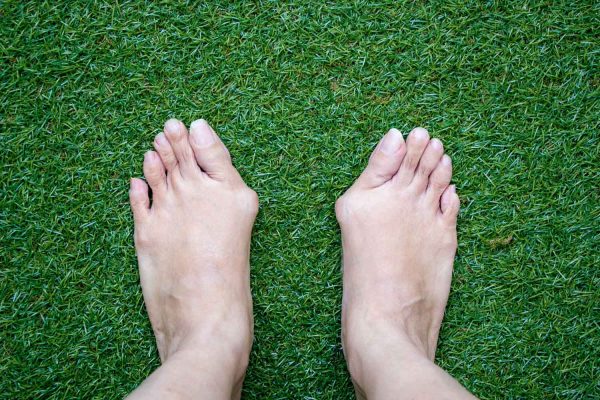Toddlers and preschoolers live carefree lives, not worrying about where dental hygiene is on their priority lists. Wait, do they even have a priority list? Of course not!
All they understand is that visiting a pediatric dentist is boring and brushing twice a day is too much of a chore. So, it’s no wonder; tooth decay is the most chronic childhood disease in children in Washington.
However, as a parent, you understand the importance of maintaining the health of your child’s pearly whites. And why not? Toothache is a real menace!
Plus, the earlier you intervene, the better.
The question, however, is: how to tell when is it time for the little one to pay a visit to the dentist?
Here are some telltale clues that should prompt you to make an appointment with the pediatric dentist.
Table of Contents
1. Sensitive Teeth:
When ice creams start hurting and hot cocoa becomes unbearable, it’s probably because your little one’s teeth have become sensitive. It could indicate tooth decay or a cavity forming in the tooth.
We understand, as an adult, you’d switch to a desensitizing toothpaste, but that won’t help the little one. It’s best to have their teeth checked by the dentist to reach the root cause of the sensitivity.
There might be hundreds of dentists and pediatric dental clinics around your residence; however, if you live in or near the North of Seattle, Washington, then you’d do good to make an appointment at Milestone Kids Dentistry, as it is among the top-rated pediatric dental clinics in the area.
2. Random Tooth Ache:
Is your child complaining of a throbbing, periodic, and localized pain in the mouth? It’s a sign that they need to visit the dentist. Toothache can be caused due to many issues like cavities, abscessed teeth, gum infections, and even a cracked tooth.
Determine whether the pain lingers throughout the day or only stays for a couple of hours. Also, ask your child if they’re experiencing only minor discomfort or full-blown pain. All this information will help the dentist diagnose the underlying cause better.
3. Mouth Sores:
It’s common for kids to have cuts and sores inside the mouth. But if they persist for more than a few days, it could mean that the little one is suffering from an oral health issue. There could be various causes for mouth sores, from biting a cheek accidentally to having an infection. If your child wears braces, it could be due to irritation from the braces.
Talk to your dentist and find out what’s causing the mouth sores and get them treated as soon as possible.
4. Bad Breath:
Bad breath is a common occurrence among adults. Caffeinated drinks, smoking, and unhealthy dietary habits are reasons for bad breath. But kids follow a simpler and healthier lifestyle. So, why would they have bad breath?
While kids’ breath isn’t supposed to smell like roses all the time but if it smells too bad, it could be a sign of poor oral hygiene habits or a dental issue. It could be due to cavities or plaque build-up. Your dentist could tell you what is causing the bad breath and suggest remedies.
5. Swollen Gums:
Puffy or swollen gums could be caused due to various reasons like gum disease, vitamin deficiency, or even an infection. The real culprit is the bacteria in your child’s mouth that starts growing as soon as the first tooth pops. Flossing is an excellent way to get rid of these pesky bacteria. But, of course, children couldn’t be bothered about flossing.
As a parent, it’s important to check for any swelling or redness in the gums. If it persists, make an appointment with the pediatric dentist right away.
6. Cracked Teeth:
Did your child take a nasty fall? Or maybe they were playing a contact sport without the necessary protection gear? These memories will likely stay with your child for years, and the agony will be doubled if a cracked tooth accompanies them.
Cracked teeth can be painful and require immediate treatment. It is because the problems don’t end with the crack. The bacteria can easily access the tooth’s inner layers, leading to a severe infection. The dentist will assess the severity of the crack and suggest a suitable treatment plan. Meanwhile, give your child some ice cream and a hug to soothe their pain.
7. Discolored Teeth:
Are the pearly whites slowly losing their shine? Can you spot discoloration or yellowing of the teeth in your child’s mouth? It could result from poor oral hygiene or drinking lots of dark-colored beverages like tea and coffee. But it could also be due to deeper dental issues like cavities or early onset of tooth decay.
Your child’s dentist would take a look and tell the exact cause behind the discoloration. Make sure you tell them about any dietary changes your child might’ve made recently or the medications they take on a daily basis. These small details can help the dental professional develop a more effective solution.
Final Thoughts:
It’s important to keep an eye out for any signs of oral health issues in your children. The sooner you spot the problem, the easier it is to treat it. Start brushing and flossing early on, and make sure your kids visit the dentist at least once a year for a thorough check-up. That way, you can rest assured that your child’s mouth is in the best of hands.





